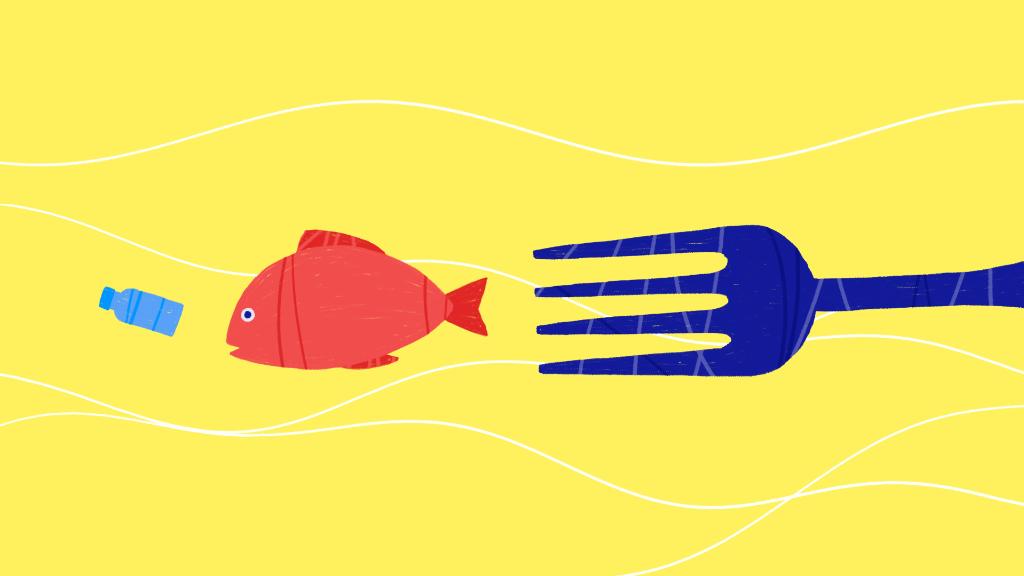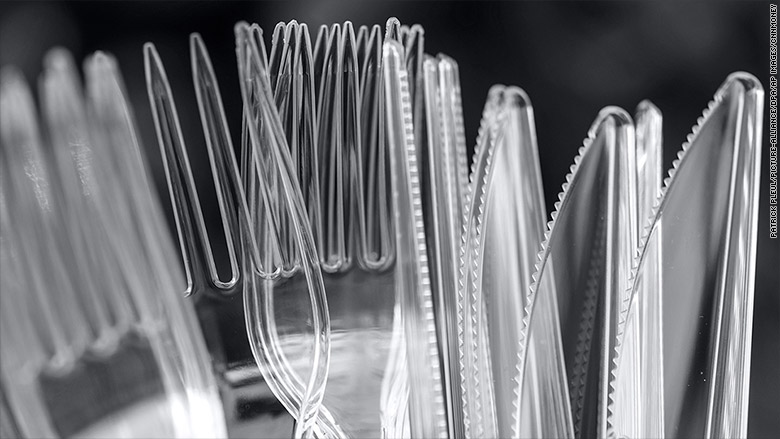
Europe is proposing a ban on single-use plastic items such as cutlery, straws and cotton buds in a bid to clean up the oceans.
The European Commission wants to ban 10 items that make up 70% of all litter in EU waters and on beaches. The list also includes plastic plates and drink stirrers.
The draft rules were unveiled Monday but need the approval of all EU member states and the European Parliament. It could take three or four years for the rules to come into force.
The legislation is not just about banning plastic products. It also wants to make plastic producers bear the cost of waste management and cleanup efforts, and it proposes that EU states must collect 90% of single-use plastic bottles by 2025 through new recycling programs.
The European Commission estimates that these rules, once fully implemented in 2030, could cost businesses over €3 billion ($3.5 billion) per year. But they could also save consumers about €6.5 billion ($7.6 billion) per year, create 30,000 jobs, and avoid €22 billion ($25.6 billion) in environmental damage and cleanup costs.
Related: China trash ban is a global recycling wake up call
The Rethink Plastic Alliance -- an association of environmental organizations -- called the proposals "a leap forward in tackling plastic pollution" but criticized some perceived shortcomings.
The proposals do not set targets for EU countries to reduce the use of plastic cups and food containers, it said.
"This could result in countries claiming they are taking the necessary steps as long as any reduction is achieved, regardless of how small," the alliance said in a statement.

The proposal also faced criticism from the plastics industry.
Plastics Europe, which represents manufacturers, said it supported the "overarching objective" of the proposal but said there must be more resources dedicated to "waste management" to ensure better collection of used plastic.
"Plastic product bans are not the solution," it said in a statement, and noted that "alternative products may not be more sustainable."
Related: Starbucks offers $10 million for ideas on a better cup
On a global basis, only 14% of plastic is collected for recycling. The reuse rate is terrible compared to other materials -- 58% of paper and up to 90% of iron and steel gets recycled.
Research shows there will be more plastic than fish by weight in the world's oceans by 2050, which has spurred policy makers, individuals and companies into action.
Last month a group of more than 40 companies including Coca-Cola (KO), Nestle (NSRGF), Unilever (UL) and Procter & Gamble (PG) pledged to slash the amount of plastic they use and throw away in the United Kingdom.
E-Commerce Guide by CNN Underscored: Plastic-free items to shop
Starbucks (SBUX) also announced in March it was launching a $10 million grant challenge to solicit designs for a cup that's easier to recycle.
